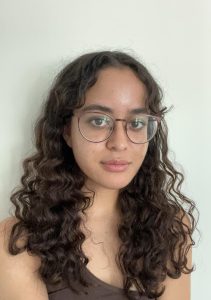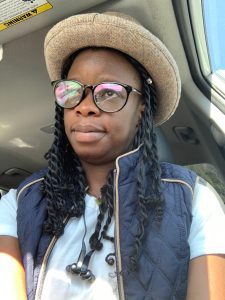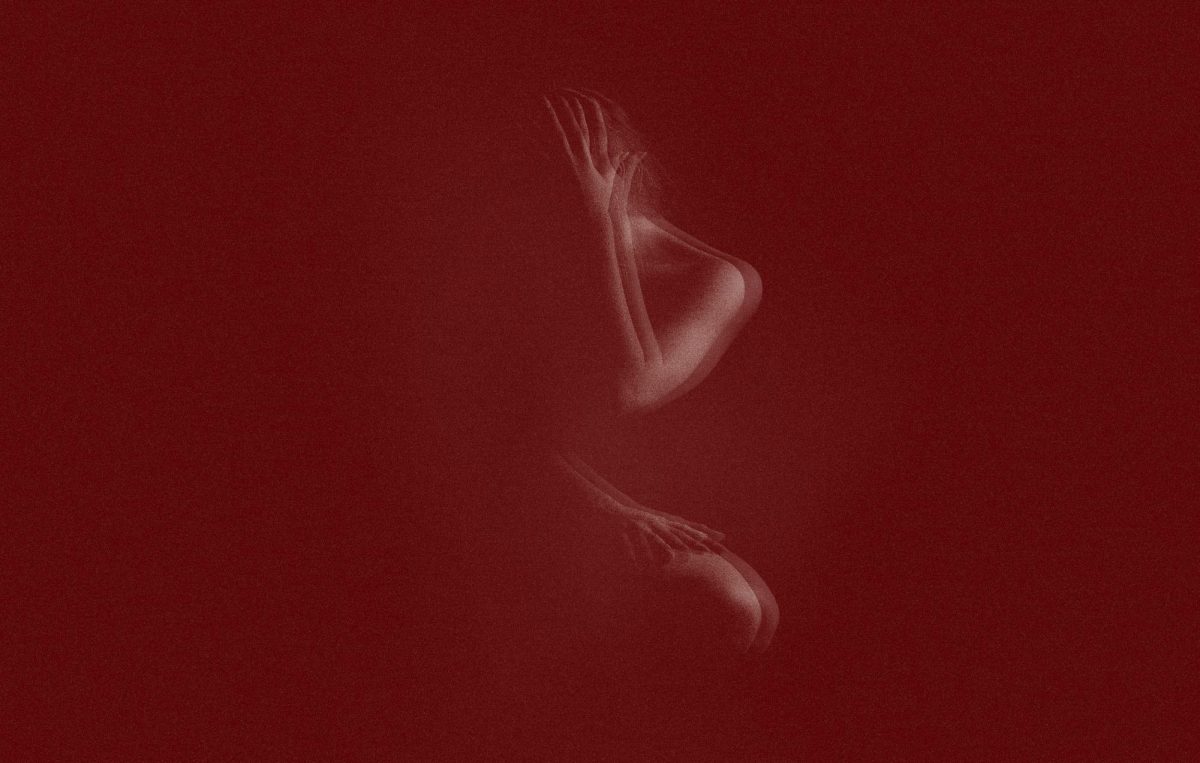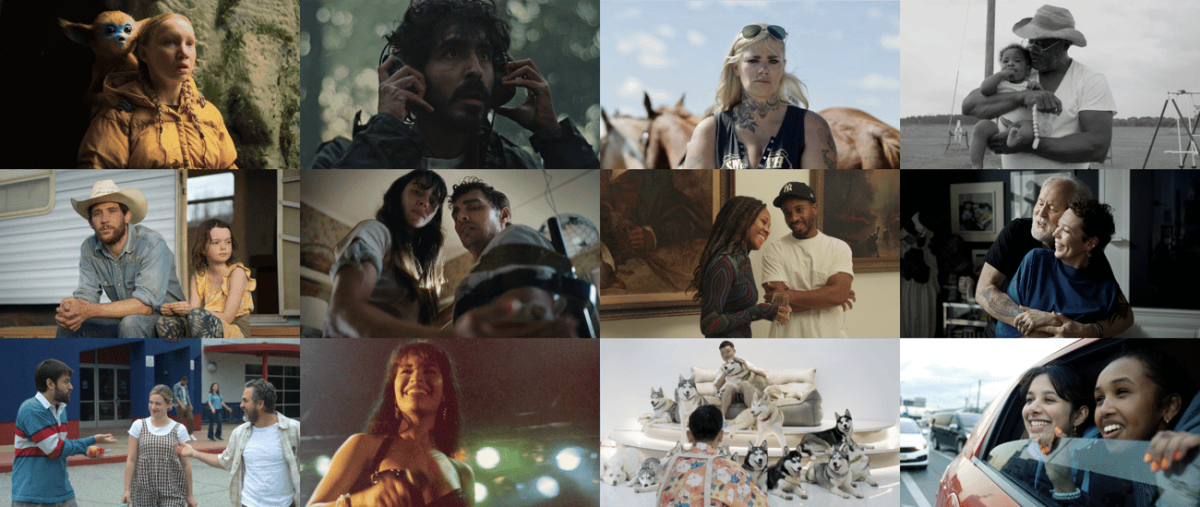Alexander: U Majors Exclude BIPOC Perspectives
Canvas print of some students in a lab at the Warnock Engineering Building at the University of Utah campus, Salt Lake City, Utah on July 5, 2022. (Photo by Amen Koutowogbe | The Daily Utah Chronicle)
August 26, 2022
There’s a serious issue with University of Utah departments excluding students of color by failing to include BIPOC perspectives. In her article, “Torres: The U’s School of Computing Alienates Students of Intersecting Marginalized Identities,” Chronicle Writer Gaby Torres covered the exclusion of BIPOC and LGBTQ+ people in the U’s School of Computing, but let’s face it: this exclusion isn’t limited to one college — we see it across campus.
Not only are a majority of students here white, but 88.4% of faculty are too, according to College Factual. When people of color are missing from our classrooms, they’re missing from our curriculum. I’ve heard students complain about all-white syllabi and listened to professors justify their exclusion of diverse perspectives. I’m tired of it — just like every other student of color at this institution.
Asian-American student Samuel Judd-Kim told me that he does not always feel welcome in the U’s philosophy program. He described the department as “overall very white, very male.” He confided that he almost dropped the major because of the discouraging lack of representation.
“Among the history of philosophy classes, there’s pretty much zero BIPOC representation … all of that history, just by virtue of how it’s been compiled, is white and male,” Judd-Kim said.
Sociology student Anjali Valentine, who is South-Asian Indian and transferred to the U from UCLA, explained that her department “felt overwhelmingly white.” She was once asked to participate in a classroom panel discussing the book “Just Mercy.”
“I remember they wouldn’t stop using the word colored to describe non-white people, and it really upset me … I was like ‘I’m transferring schools,’ … I can’t do this shit anymore,” Valentine said.
When Valentine raised these concerns, people told her to go back to UCLA.
“It’s just like, ‘we don’t care to make this space better so you should just go back to the one you came from,'” she said.
The exclusion of BIPOC perspectives tokenizes the few students of color present on campus. Haydee Pena Gamez, a Mexican-American geography student, explained over email that in her classes, “there is always a sense of ‘otherness.’” She’s one of very few students of color in the entire geography department. Despite professors being welcoming of different opinions, they only ask her for such opinions. Then, “there are, of course, the random ignorant students that say multiple racist [things] or microaggressions that leave me crying out of frustration,” she said.
Unfortunately, racism doesn’t escape professors of color, either. Valentine described a professor of color who continuously put up with outrageous remarks from students. She commended the professor for being patient, but still questioned, “what’s gotten you to stay so long?”
Judd-Kim expressed similar concerns for students, explaining that students and philosophers of color feel a responsibility to stay in the field to diversify philosophy.
“Do you stay in the field and try to make it better for the future generations of philosophers?” Judd-Kim said. “And at what point do you say … ‘This is not a field that’s going to be welcoming to me in my career?’”
One South-Asian Indian biology student, who wished to remain anonymous, detailed how exhausting it is trying to diversify one’s field.
“I’ve always felt like I have to carry the diversity on my own shoulders, like I’m the one that’s being the change,” they said.
The student explained that while they’re grateful to be part of the program they were historically excluded from, sometimes it’s a burden.
“The push for diversity comes at the expense of diverse students,” they said.
As these students can attest, excluding BIPOC perspectives neglects the U’s students of color. Lack of representation makes it harder for us to connect to our majors and disciplines, and as Judd-Kim and Valentine expressed, it results in feelings of discouragement. And if students of color lose motivation to continue in their departments, that will only further major exclusivity and limit accessibility to future generations of BIPOC students.
Fortunately, we’re not alone in fighting for diverse perspectives at the U. The School for Cultural and Social Transformation works to improve inclusivity through hiring in partnership with departments across campus. Dr. Edmund Fong, Transform’s chair of ethnic studies, explained that their hires provide “education and curriculum syllabi on BIPOC perspectives that are well informed, centrally informed and not just something tacked on as we’ve often seen with certain more traditional departments.”
Transform also offers certificate programs providing students with culturally sensitive and appropriate education on specific communities, transformative justice and EDI work, which will help students lead future EDI efforts beyond the U. However Fong did specify “it’s an uphill battle” but the school is trying to do their part.
If the U administration cares about inclusivity, then we should see more than our current performative initiatives. The drive for diversity shouldn’t be left to Transform and BIPOC only — all U faculty and students should work towards promoting BIPOC perspectives within their own departments.










John Hedberg • Aug 30, 2022 at 9:18 am
p.s. There’s no such thing as a “BIPOC perspective”. I’m “BIPOC”, and you clearly don’t represent me! I think a majority (hopefully that word doesn’t offend you) of “BIPOC” students, many of whom worked very hard to get here, probably see the division you’re exploring more along the lines of being a dichotomy between a grown-up perspective, based on what we give, and therefore the example we lead by, and a more infantile perspective, based only on what we think we receive. An adult loves, gives, works hard, understands & forgives human fallibility, since it’s part of human growth, tolerates and nurtures occasional “boo-boo’s” we all make as part of our mutual learning process, and provides (not expects) honesty, comfort, and support for everyone, as human beings , brothers and sisters, equal children of an Infinite Love (by whatever name) which made us.
Rather than learning to feed oneself with Love, and thereby learning to feed others with the same high standard, an infant has tantrums and expects other people’s instant adherence to their demands & expectations, no matter how selfish, severe, biased, or destructive. With an infant, how they feel is always someone else’s responsibility, always someone else’s job, whereas an adult perceives that human life is full of universal suffering, much of which is part of our individual trajectory, and the heart of being an adult human is in how we understand, tolerate, nurture, and uplift each other in the midst of this necessary suffering, rather than arguing whether the person next to you, who may have been thinking of their dying grandma at the time, might have accidentally looked at you funny. Adults choose to perceive life being about “us”, whereas infants want what they want, and their feelings are always somebody else’s “fault”, rather than an adult responsibility to choose understanding and to respond with caring & friendship, finding identity in our common humanity.
Do you see a trend here?
You unequivocally and absolutely don’t represent a “BIPOC perspective” on campus, because the rest of us “BIPOC’s” have our own individual opinions and perspectives, and I don’t remember you even asking the rest of us.
All of us have our own individual perspective, and only an infant or a megalomaniac imagines that their feelings somehow represent or have anything to do with anyone’s but their own, a reflection of their own choices and perceptions, the content of their character.
If you ignore the fact that easily half the “BIPOC’s” probably disagree with your perspective, not only are you dehumanizing us, but you’re practicing the very same bigotry toward “BIPOC’s” which you attribute to all the mostly innocent people around you. How’s that for irony?
With Love,
Best Regards,
J Hedberg
John Hedberg • Aug 28, 2022 at 6:31 pm
Have you ever thought of practicing gratitude? (I use “practicing” deliberately, because it does take a lot of practice~!).
Your attitude is the real poison, and not the people around you. Your assumptions are the real cause of the hurt you attribute so easily to the other human beings around you who are no better off, or worse, than yourself.
Adjust your self, then, and a lot of the difficulties you perceive will simply fall into place like magic!
That’s growing up, and you are fully capable, having all the keys necessary to building happiness.
FYI, no offense, but your racist rant about other people betrays an almost amusing lack of learning about the world around us.
First off, unless they’re reading from a book written in the 1930’s, no one in this country has used the term “colored” to describe non-European people in more than 50 years. And if you move to a place which was settled mostly by people of European background, you’re likely to find that the “majority” of people in that place are their descendants. Should people not have children, just so as not to offend you and trigger your pompous & ridiculous outrage, simply because they were born, grew up, and lived life?
You seem to focus a lot on the supposed racist expressions of other people, completely ignoring the fact that your entire article is an expression of your own flagrant racism. Tell me again, how are you excused for your own blatant racism, just because you choose to perceive and attribute your own inner problems to all the human beings around you, most of whom are innocent? Why not try ending your own racism, and then go poke someone else in the eye regarding your vision problems?
And then there’s your warped and unstudied assumption that the knowledge and perspectives being shared with you are somehow “all white”. Most people in this country are a polyglot of many cultures whose ancestors intermarried, so a name tells you nothing about the ancestry or culture of the person your bigotry is making assumptions about. My last name is Swedish, but my ancestor-immigrants represent at least 10 ethnic groups. Even in my own family, some of us are tan, some tan as soon as we go outside, and some can’t tan at all. Some have light eyes, some don’t. Some are tall and light-boned, others are shorter and big-boned. We have artists, entrepreneurs, doctors, engineers, scientists, farmers, serving military veterans, teachers, stonemasons, chefs, linguists, drug addicts, and homeless people, all living in the same generation. You literally can’t tell the genetics of any of the people in your syllabus, not their race, sometimes not even their gender. Again, your assumptions are the poison.
Why spread them?
The list goes on. “Western Civilization” is largely non-European, much like American culture. Most of it is diversity we adopted and mixed together from around the world. Our dominant religions are Judeo-Christian, both of which are Jewish, meaning they derive from West Asian & North African heritage. Our alphabet is Phoenician (Asian). A lot of our political and philosophical origins are Ancient Greek (who founded and informed the Romans), and Greek civilization originated in Asia. Our mathematics is primarily Ottoman (Arabic: Asian), mixed in with some Ancient Greek. Many of the great thinkers we venerate are Jewish (think Einstein, Freud, etc.), therefore Asian & African.
If Europeans have one strength, it seems to be the ability to blend disparate diverse ideas and customs in a way that most places on Earth don’t. Favorite foods: Corn on the cob (Native American), Hamburgers (Germany), Pizza & Pasta (Italy), Tacos and Nachos (Mexico), Chinese food. Religious practices: Yoga. Karma. Meditation. Tai Chi. Some of the best music in this culture is Jazz, which is African-American.
In fact, what exactly is a “white” attitude? This culture is such a hodge-podge mix of different hereditary influences, I can’t see how that racist accusation (racist, because you are) even has any real meaning.
Meanwhile, our culture is so “racist”, it bent over backwards to placate your own supposed “grievance” during the recent pandemic, to the point that I almost died as an equity homicide.
I got 2 Pfizer shots in 2021, but in August of ’21, I got Delta anyway (so much for being a pandemic of the unvaccinated). Since I have multiple comorbidities, I drove straight to the ER and asked for monoclonal antibodies, which were available to anyone who scored high enough on the comorbidity checklist we were required to fill out. However, since Utah wanted to appear “equitable”, they actually tried to deny antibody treatment to people with pale skin who needed it, simply so they could say they rationed it according to ethnic group, rather than giving it to whoever needed it most. I fit the highest-risk group by the comorbidity checklist, but they almost denied me anyway.
https://freebeacon.com/coronavirus/utah-was-warned-racial-rationing-of-covid-drugs-was-illegal-it-did-it-anyway/
(The Atlantic, among other publications, also produced an interesting article about this).
My doctor actually rebelled against state and CDC guidelines by giving me life-saving medical treatment which no one else needed at the time (I asked), simply so they could say they saved a certain proportion for “people of color”. In other words, social justice warriors were literally willing to let me die for no reason, just so they could pretend to be racially virtuous while they exterminated my life.
Since we’re equally human, how would you “feel” if they tried to do that to you? Is that worse than a microaggression somebody probably wasn’t even aware of? And how many Utahns DIED for no reason, because their doctors didn’t refuse to follow the state’s ethnic cleansing guidelines?
Even with the monoclonal antibodies, I had a 2-week fight with COVID in which my oxygen uptake dropped to critical levels several times. But if I hadn’t had the antibodies, hey, at least I could have died knowing that even though no one else needed the antibodies at the time they were denied to me, I would have been preserving the APPEARANCE of racial equity to satisfy righteous feelings of outrage over past examples of people being denied critical medical care based on how they looked! (haha)
Funny thing is, I’m technically Hispanic (among other ethnicities); I just don’t appear that way (– to you!).
My recurring question is, “How is it that you think your own racism is somehow justified, at the same moment you falsely paint & project your racism onto people innocent of the very crime you seem addicted to expressing?” In truth, people are far more annoyed and influenced by behavior than appearance. Of course, believing that means you’d have to take some adult responsibility for your perceptions… (wink)
You likely face other people’s impatience with your racist assumptions, the constant stink-eye you critique other people’s behavior with. I faced needless death, because though I’m probably far more genetically diverse than you, my skin tone is light, and my last name sounds more Euro, so therefore treating me like a dehumanized walking target is somehow justified… in the eyes of racists. (Gee, Thanks!)
Anyway, before your racism kills someone, why not check your own attitude, and start practicing gratitude for all the good you receive while attending a world-class university, which clearly caters to your every whim, in a nation more open and prosperous to new ideas and new people than any other in history, anywhere on the planet? Why do you think everyone continues to come here every year in the millions?
Just sayin’!
Best,
With Love,
J Hedberg